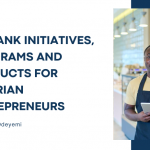Nigeria kicked off its participation at the 79th United Nations General Assembly (UNGA) with a major win, securing a $320 million investment commitment from the U.S. Chamber of Commerce. This significant development took place during the US-Nigeria Executive Business Roundtable, which featured Vice President Kashim Shettima and top business leaders.
The U.S. Chamber’s Nisha Biswal, representing the American International Development Finance Corporation, announced a $200 million investment in mortgage refinancing for Nigeria, further strengthening the country’s housing sector Additionally, $100 million was allocated to First City Monument Bank (FCMB) to finance small and medium enterprises (SMEs), while $20 million was earmarked for Robust International to boost cashew nut processing in Nigeria.
Vice President Shettima, speaking on behalf of President Bola Tinubu, emphasized Nigeria’s potential as a prime destination for foreign investment. “I urge you to give Nigeria the benefit of the doubt. The current administration, led by President Bola Ahmed Tinubu, is the most investor-friendly in our nation’s history,” Shettima stated. He highlighted bold reforms like the removal of fuel subsidies and the unification of foreign exchange markets as key indicators of the administration’s commitment to economic growth.
Biswal reaffirmed the U.S. Chamber’s dedication to supporting Nigeria’s sustainable development goals, underscoring the importance of continued collaboration.
The roundtable was attended by top Nigerian officials, including ministers overseeing key sectors such as innovation, technology, industry, and health, all working together to attract investment that will strengthen Nigeria’s economy.
Throughout UNGA79, Vice President Shettima is set to engage with international leaders and organizations, including the UN Secretary-General and multinational companies like the Bill and Melinda Gates Foundation, further positioning Nigeria as a strategic player on the global stage.
With these new investments, Nigeria’s SMEs and agri-businesses stand to gain significant support, offering fresh opportunities for economic growth and innovation.










